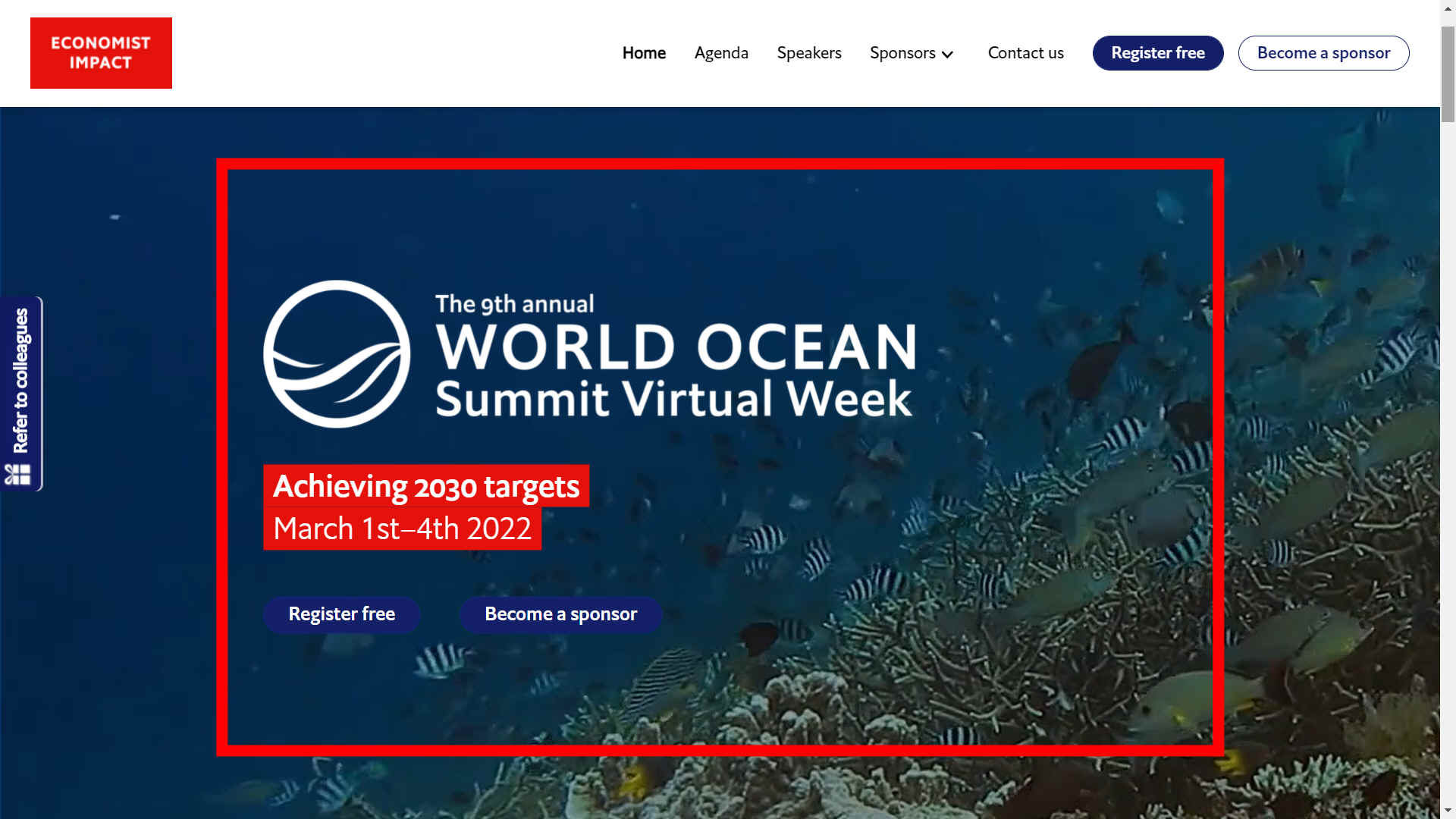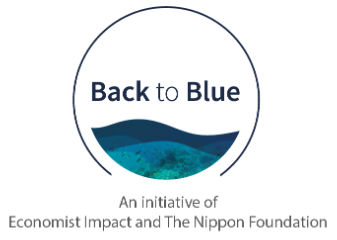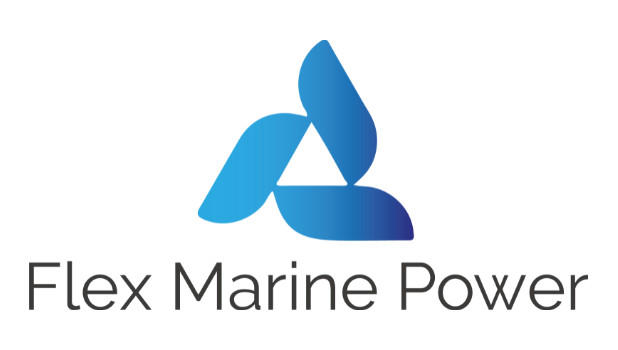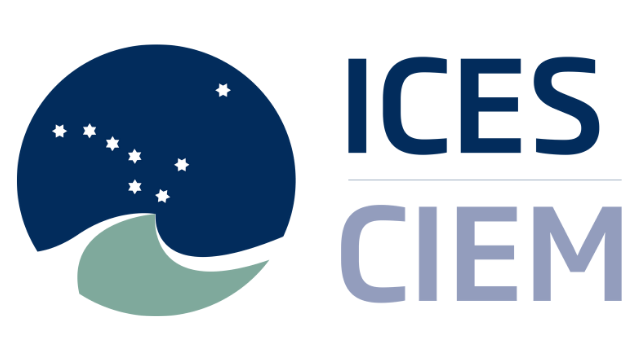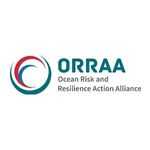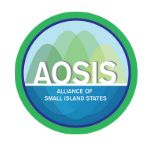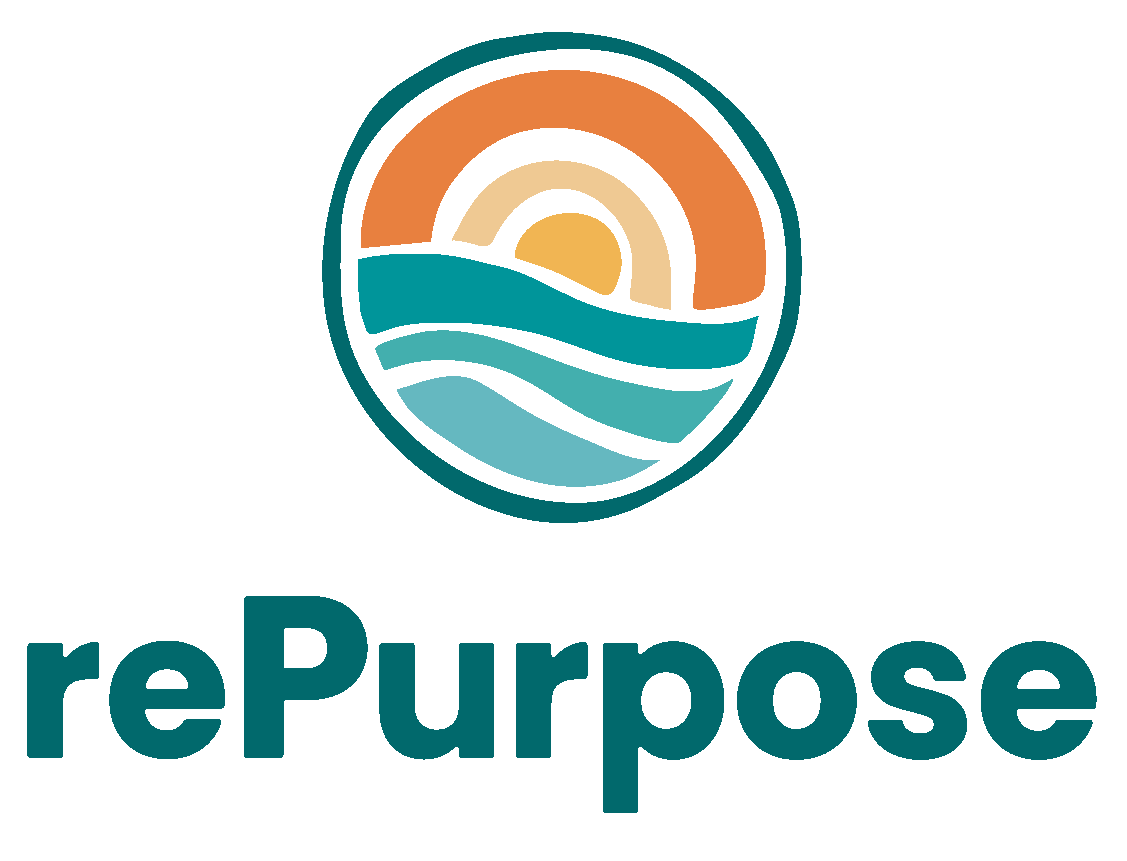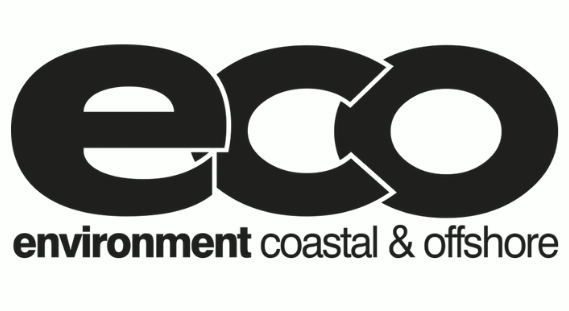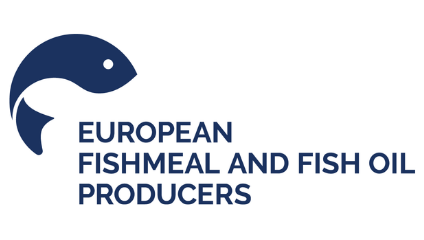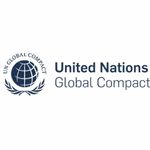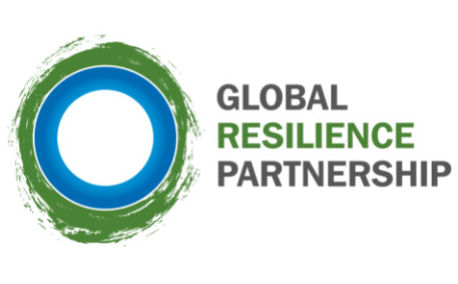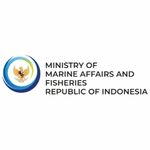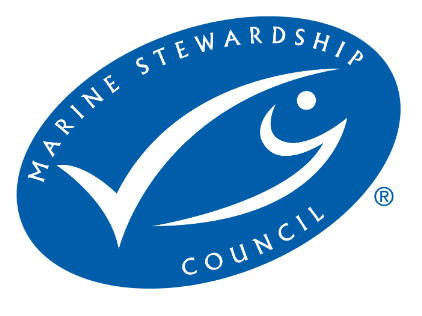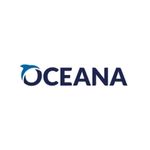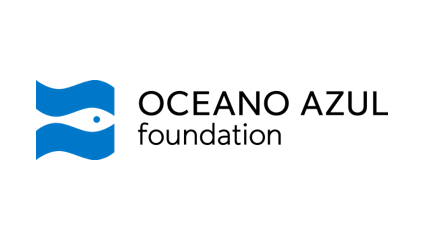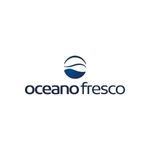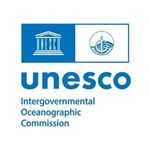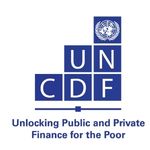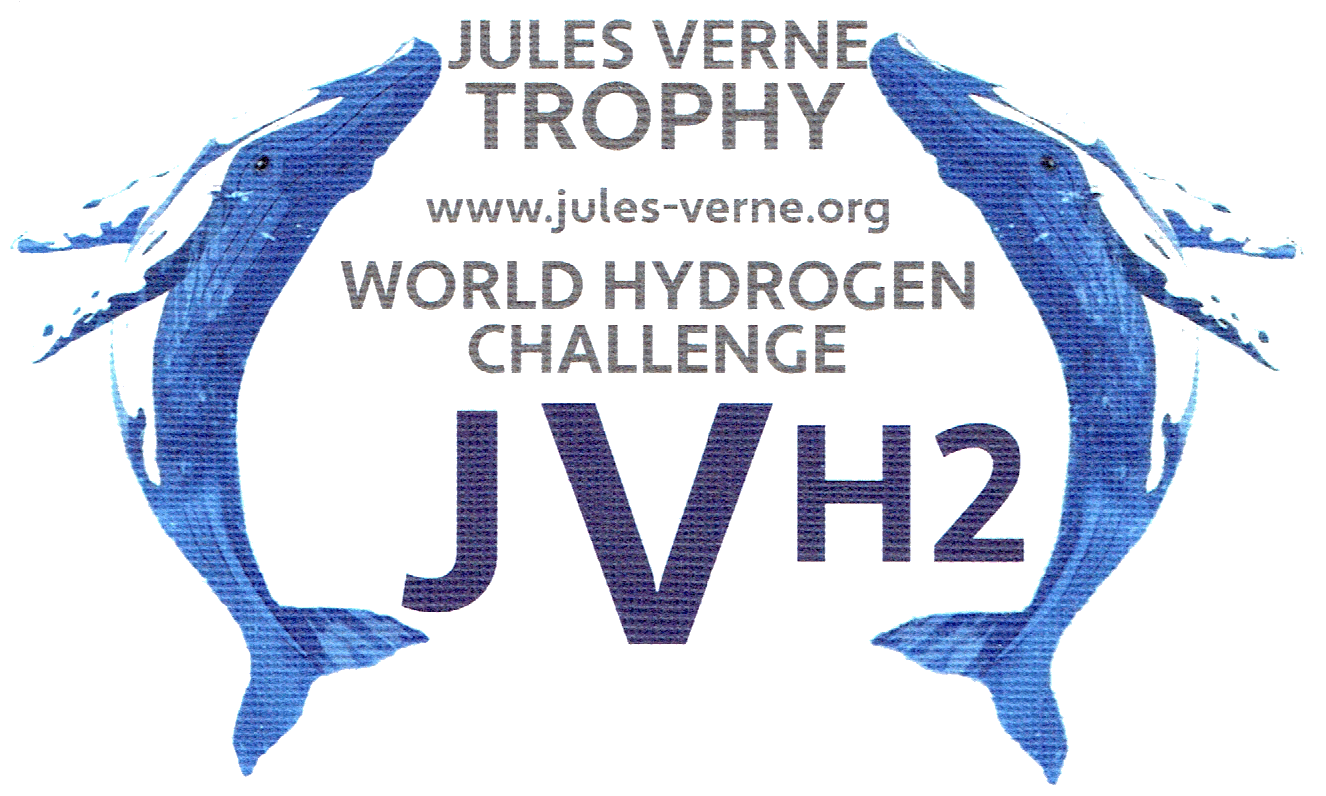28th
FEBRUARY
- 2nd MARCH 2023
This global event is taking place over four days, and will bring together a
very broad cross-section of the ocean community, from businesses to scientists, government, investors, and civil society. It will feature six industry tracks:
shipping,
fishing, aquaculture, energy,
tourism, and
plastics.
An as yet unpublished live up of speakers will provide checks on how their industries are progressing towards 2030
- 2040 targets, and what needs to happen next. Sessions will address cross-industry topics including ocean
finance, governance, and restoration solutions. Speakers will discuss the finance gap, assess new technologies and highlight successful initiatives that are beginning to make an impact on ocean health. In
2021 the event attracted over 8000 registrants from 175 countries.
In 2022 speakers included:
- John Kerry, special presidential envoy for climate, US
-Amina J. Mohammed, deputy secretary-general, UN and chair, UN Sustainable Development Group
- HSH Albert II, sovereign prince of Monaco
- John Briceño, prime minister, Belize
- Razan Al Mubarak, president, International Union for Conservation of Nature (IUCN)
- Virginijus Sinkevicius, commissioner for environment, oceans and fisheries, European Commission
- Mariam Bint Mohammed Almheiri, minister of climate change and environment, UAE
- Jane Ewing, senior vice-president for sustainability, Walmart
- Ana Gascon, world without waste director, Coca Cola Europe
- Whitney Johnston, director of oceans sustainability, Salesforce
- Brune Poirson, chief sustainability officer, Accor
- Maya Gabeira, professional big wave surfer, activist and board member, Oceana THE
2022 IPCC REPORT - A Rapidly Closing Window of Opportunity for Climate Action
According to the latest IPCC report, the science is unequivocal: Climate change endangers the well-being of people and the planet. Delayed action risks triggering impacts of climate change so catastrophic our world will become unrecognizable.
The next few years offer a narrow window to realize a sustainable, livable future for all. Changing course will require immediate, ambitious and concerted efforts to slash emissions, build resilience, conserve ecosystems, and dramatically increase finance for adaptation and addressing loss and damage.
The COP27 summit, held in Egypt in November
2022, is a crucial opportunity for governments to make progress on all these fronts, and for developed countries to demonstrate their solidarity with vulnerable nations.
Coming to grips with the climate crisis will not be easy. Governments, civil society and the private sector must all step up. As the IPCC report makes
it abundantly clear, there is no alternative.
POLICY INNOVATION DRIVERS ARE CONSIDERED TO BE VERY NECESSARY
The present system, where research is funded, but not prototype development,
is seen to be a major stumbling block when it comes to implementing
solutions. In addition, assessors are risk averse, knocking out SME start
ups and not for profit R&D organizations.
There is a discrepancy between the emergency underlined in the 2022 IPCC report in addressing climate change and the timelines mentioned during the shipping & decarbonization talks during The Economist 9th annual World Ocean Summit.
A lot of emphasis was put on the complexity of decarbonization. There was a lot of goodwill to solve this challenge by many speakers, but others seemed satisfied with current efforts, which however lagged dramatically behind the real needs.
Disentangling from fossil fuels is complicated where policies are conflicting, but technical solutions already exist. To-wit the move by Maersk to Methanol/Diesel (dual-fuel) container ships - and order being placed in March 2022. (innovators were under represented at the conference).
In theory the principle of law is that: "The polluter pays".
Some speakers mentioned that States should finance the technological progress and that the prices of shipping would double with the new norms’ adoption.
But the current shipping rates don’t even include the cost of natural capital or externalities (biodiversity, heavy metals pollution and so forth, on top of CO2).
Shipping rates are thought to be roughly half of what they should be, if natural capital costs were included. Ignoring subsidies for now.
Where the law says the polluter should pay, if the technology is not advanced enough for that to happen, we consider that it is the duty of administrations to seek to accelerate development appropriately with grants, or with tax incentives.
When contacted to ask about alternative fuel provision. One port operator on the south coast of England, responded: "We are not into that."
Unsurprisingly, the Foundation was somewhat taken aback. For, if that is the stance taken by other port operators, the British government for one, are not doing
very well, in contrast to Europe, where a methanol tug is already operating
in Amsterdam.
We are happy to report that the largest port operator in the UK was very much more positive. But we have not undertaken a substantive study.
As to methanol, enquiries of suppliers, elicited a positive response. Even though as we write, facilities for alternative bunkering is not in place.
The 9th annual World Ocean Summit will feature six industry tracks
focused on:
1. shipping,
2. fishing,
3. aquaculture,
4. energy,
5. tourism,
and
6. plastics.
This is the nub of a blue growth agenda, including
deep sea mining and
biotech.
Speakers discussed the finance gap and assessed new technologies from 2021, highlighting successful initiatives that are beginning to make an impact on ocean health.
We noted that ocean health is (unfortunately) not improving. Meaning that
whatever has been funded previously is insufficient. The
Cleaner Ocean Foundation is of the view that nothing much will change on the
plastic front, until the ocean is so toxic, that people are queuing at
hospitals for treatment. At which time it could become an election issue. As
things stand, we need to show that cancer and other human maladies are
linked to fish swimming in a polluted environment. As
with the climate issue, it will all be very last minute - and probably too
late for significant numbers of victims.
Topics covered in each track include:
Plenary sessions
- Financing the blue future -
Literacy,
ocean awareness, educating for appreciation
- Tackling the ocean conservation finance gap
- Driving investment into natural capital to increase coastal resilience
- Ocean governance and national ocean strategies
- Ocean and cities
- Ocean solutions to mitigate climate change
- Blue carbon – achieving scale
- Deep-sea mining
- Blue biotech
- Accelerating action towards the 2030 marine protected areas (MPA) target
- Expectations from the UN Decade of Ocean Science
- Revolutionising ocean data-capture, sharing and analysis
- Marine spatial planning
- High hopes for seaweed AQUACULTURE
Increasing consumers’ appetite for aquaculture
Putting fish welfare front and centre
Will early-stage investors take the plunge to de-risk growth? FISHING
Overcoming overfishing
The high-tech future of fishing
Agreeing upon a common approach to social issues ENERGY
How can governments catalyse offshore renewable energy development?
Assessing the environmental impact of offshore wind
Creating a viable green-hydrogen market SHIPPING
Powering the ships of tomorrow
The economics of decarboniastion
Collaboration for decarbonisation PLASTICS
Collaborating for critical wins in plastics circularity
What should recycling look like in 2030 and how do we get there?
Making the economics work: virgin v recycled plastic TOURISM
Is tourism building back bluer?
The regenerative effect of tourism on the ocean
Mass tourism: risks v benefits
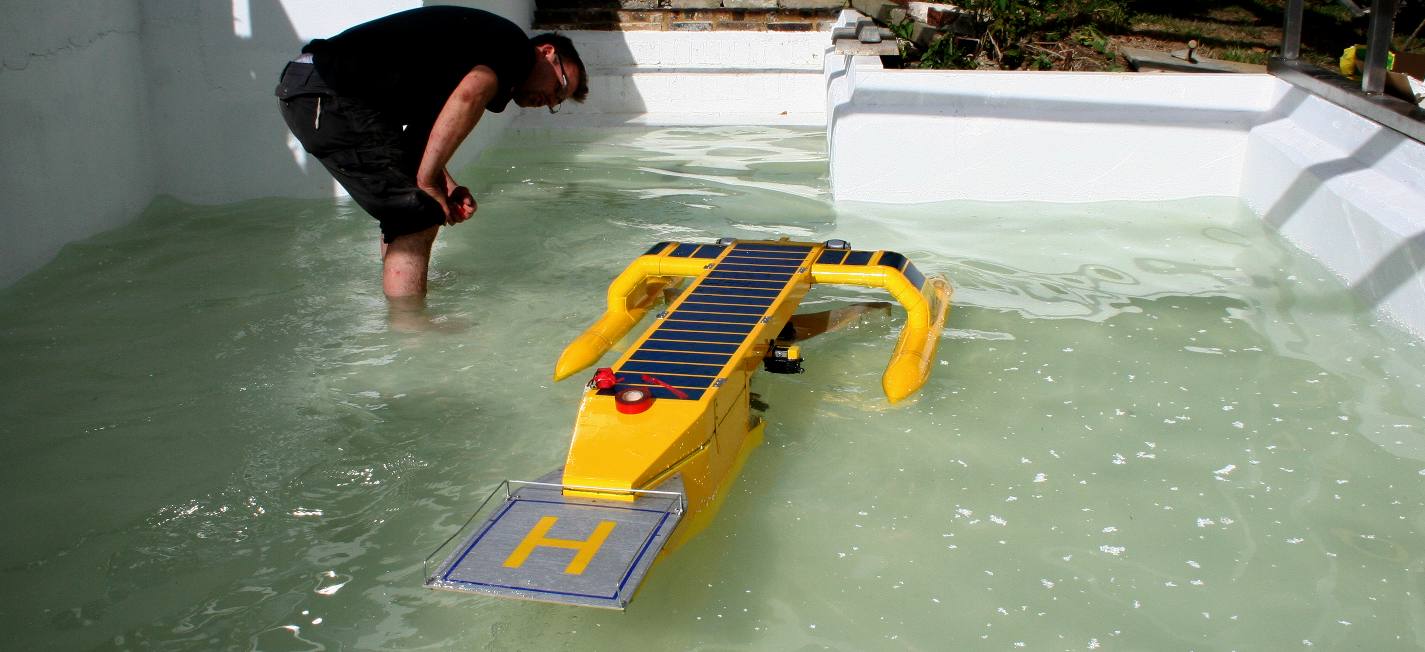
OCEAN
REGENERATION - The SeaVax
project (above) from 2016 proved that it was possible to filter plastic from the
oceans using a solar powered machine to target micro and macro sized
particles - selectively. An added function was to have been the ability to
capture and store ghost
fishing nets. It was
unfortunate that Brexit shrouded EU Horizon 2020 applications in political
mist, as much as what many have said was a perverse decision on the
part of the UK Charity Commission, not to classify the project as a charitable
enterprise. Without funding of any sort, the project stalled at the 1:20
scale stage, not going on to full or even half size prototypes. And was
eventually cancelled in 2020. But even so, in late 2021, volunteers
completed tests of the beach launching system - convincingly demonstrating
that element of the project - with successful (proof of concept) trials,
that should be published in 2022 or 2023 as time allows. The project was
thus a success in scientific terms, if not implemented at a practical level. Please
note that development and operations of such machines is a loss maker, with no
customer to be able to recover development costs. As such, no business model is possible.
A business, by definition being a profitable concern. Financing for ocean
restoration is thus the single biggest hurdle. A matter governed by
political will against established conflicts of interest. The G20 might want
to start thinking about social innovation funding, to atone for their dirty habits. In
our view, there is something seriously wrong with a world that allows a
project such as SeaVax to go unaided and untried - all the while litter
pours into the sea. Events such as this Summit, will be looking at
leveraging equitable incentives for innovative ocean entrepreneurs of the
future. The
Cleaner
Ocean Foundation advocates a multi pronged attack on plastic, by reduction of
disposable packaging and re-design, or outright ban on some items that
cannot be effectively recycled. This is in addition to seeking replacements,
by way of biodegradable and compostable plastics, etc. One fast food chain
that has reacted to the polymer crisis in timely fashion is McDonalds. Now
using paper and cardboard packaging for their burgers. They have even
introduced a vegan burger called McPlant. Nice one McD.
The
general consensus is that seafood is becoming more toxic as fauna soak up carcinogens,
from ingesting plastics laced with poisonous substances, potentially raising cancer rates in humans and
overburdening our health services. Eventually,
it is thought that whaling may have to be re-instated to make up for lost fish
protein. A sad situation if it ever comes to that.
What is the big picture for ocean regeneration, and how can collaboration between governments, industry, investors, scientists and NGOs bring it about?
These sessions will outline International expertise, ambition and new strategies to restore ocean health.
THE
ECONOMIST - CONTACTS
general enquiries: oceansummit@economist.com.
Marketing or PR event enquiries:
Naomi Grice
Marketing Manager
naomigrice@economist.com
Speaking Enquiries:
If you are speaking or you have an enquiry about speaking:
oceansummitspeakers@economist.com.
Sponsorship opportunities details about sponsoring and partnering.
Tatiana Der Avedissian
Email: tatianaderavedissian@economist.com
Tel: +44 (0) 739 560 4731
Alice Calvert
Email: alicecalvert@economist.com
Tel: +44 (0)795 6330 689
|
